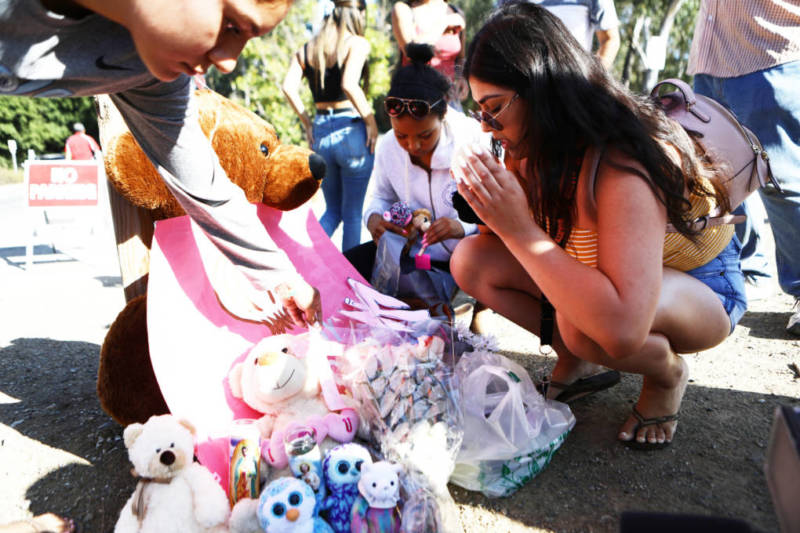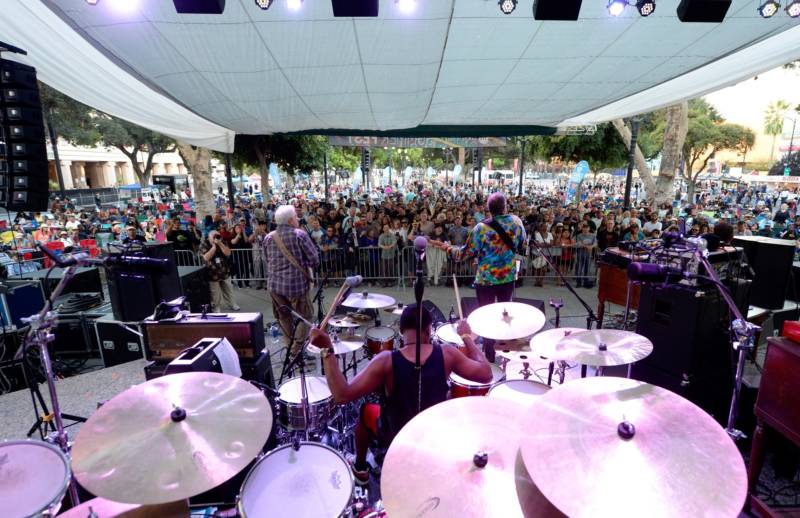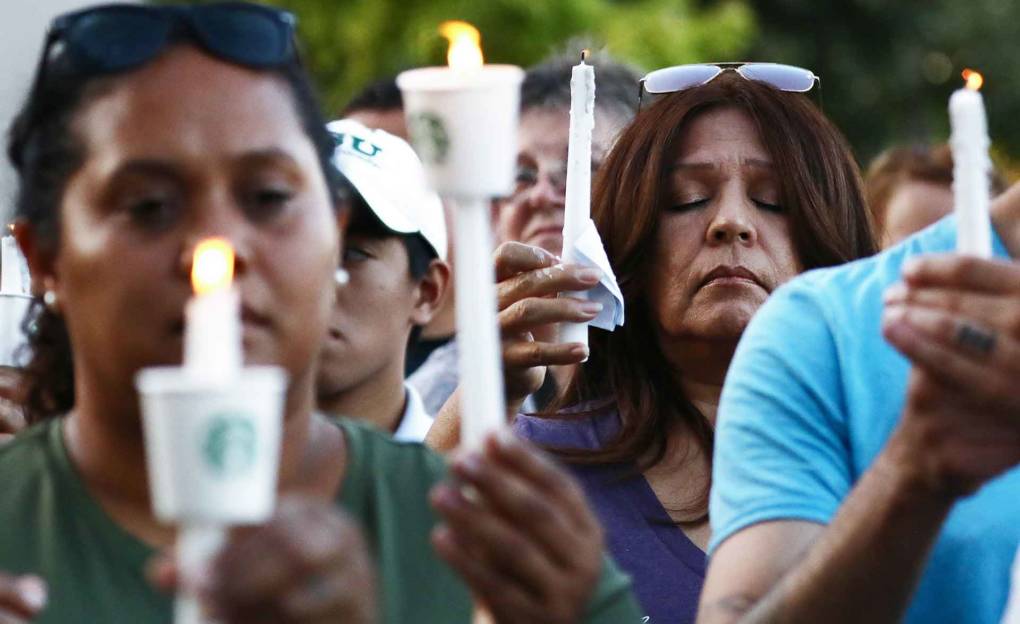Rebecca Macias was looking forward to seeing Blink-182 and Twenty One Pilots at Outside Lands so much that she splurged on a three-day VIP pass and a place to stay in San Francisco—a big expense for a fourth-grade teacher from Davis. But after the July 28 mass shooting in nearby Gilroy, and the ones that followed in El Paso, Texas and Dayton, Ohio, she’s spent the week deliberating whether she should go at all.
Music Fans Scared to Attend Outside Lands, Other Festivals After Mass Shootings

“My anxiety is through the roof,” she says days ahead of the festival, which takes place in Golden Gate Park Aug. 9–11. “It feels like we’re going and we’re hoping there’s not a mass shooter, and that shouldn’t be on our minds.”
According to new research from Chapman University, 41 percent of Americans are afraid of mass shootings—and for good reason, as the incidents have become more common, and deadlier, in the last two decades.
That fear has only increased as politicians continue to offer thoughts and prayers for victims of shootings without passing legislation to curb civilian access to military-grade assault weapons. And on Aug. 7, Amnesty International issued a travel advisory for the United States, urging international visitors to exercise caution and avoid cultural events, places of worship, malls and schools.
[My colleague Pendarvis Harshaw and I asked our Twitter followings about whether people are hesitant to attend large events after mass shootings. We heard from dozens of readers, some who stayed home from events or found themselves coming up with evacuation plans while trying to enjoy themselves.]
Emily Watkins, a data scientist from Napa, says she became unsure about attending Outside Lands after reading about a Gilroy man who was arrested for posting on Facebook that “my goal is to kill 500, not three” after the mass shooting in his city.
“Anytime you hear about any of this, it makes you not want to go to any events ever,” says Watkins, adding that she goes back and forth on giving up the tickets her boyfriend gave her as a graduation gift.

Outside Lands has implemented an emergency alert system that attendees can sign up for by texting “OUTSIDELANDS” to 888-777. In a statement, festival producer Another Planet Entertainment told KQED that Outside Lands will include heightened security and police presence this year. “While for obvious reasons we do not provide specific information regarding our procedures, staffing or security measures, we do work closely with local, state and federal agencies when planning throughout the year and are continually addressing the current incidences that have occurred around the state, country and world,” the statement reads.
The producers of San Jose Jazz Summer Fest, which also takes place Aug. 9–11, say that they’ve reduced the number of entrances and increased the number of exits to the event, and are also working with law enforcement. “Since the tragedy in Gilroy, we have been in close communication with the Mayor’s Office and the San Jose Police Department regarding additional measures that will be implemented this year,” San Jose Jazz Executive Director Brendan Rawson told KQED in an email.
Despite these reassurances, some festival-goers are still reluctant to attend. Recent mass shootings have taken place at such a wide variety of locations, and affected people across so many demographic lines, that it’s impossible to predict when and where the next one will happen.
“Pop concerts, rock concerts, country concerts, gay clubs, regular nightclubs, elementary schools, high schools, college campuses, f-ckin’ post offices—everybody and everything is a target,” says Guillermo Hayes, a show producer at ALT 105.3 FM. He plans to attend Outside Lands for the first time this weekend, albeit with plans to mind the exits and stay aware of his surroundings.
“They can have all the screening they want. They talked about bringing clear bags and backpacks, and you’re going to go through a metal detector and body search,” says Macias. “In this email, they have all these ways they’re going to protect us with more police. But to me, that doesn’t make me feel any more safe, because some other places have had that as well, and there’s been shootings.”

Jarvis Neely, a San Francisco startup employee and musician, is considering selling his three-day Outside Lands pass. Neely is frustrated with government inaction in the face of white supremacist violence. While the FBI is investigating the Gilroy shooting as domestic terrorism, hate crimes have been on the rise for five consecutive years.
“It’s a blind eye that gets turned—this is coming from a pure Black kid in the city,” Neely says. “In my eyes, nothing is changing with racism. It’s getting worse, and it’s getting easier to conceal it.”
Macias agrees.
“I feel like with the president we have now, it’s fueling the flames to where [white supremacists] feel like they’re a part of something,” says Macias. “Just like the Taliban and ISIS, I think we’re having these suicide missions for the cause. The gunmen that go in, they know there’s a high chance they’ll be killed, but they don’t care.”
Still, despite her anxiety, Macias says that she’ll still most likely attend Outside Lands anyway. That’s what Dr. Melissa Brymer, director of the terrorism and disaster programs at UCLA, advises people to do. Bringing a friend for emotional support helps, she says, as well as reading up on the festival’s official safety guidelines.
“Having fun is important for our well-being,” Brymer says. “That also has to be the message in this.”



